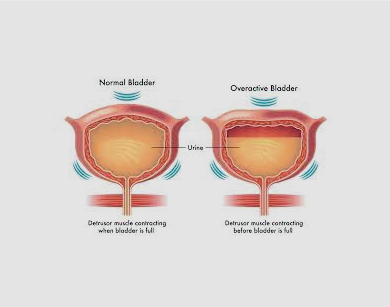
September 8, 2024
Peing A Lot More At Night: Medlineplus Medical Encyclopedia
Overactive Bladder During The Night: Therapy And Avoidance Your doctor will advise that you restrict your fluid intake prior to going to bed. Stop alcohol consumption beverages a few hours prior to bedtime, but see to it you get sufficient fluids throughout the day. If your physician believes you may have OSA in addition to nighttime urination, they will likely advise a rest research in a sleep lab or an at-home rest apnea test. Your medical professional might likewise ask inquiries or order various other tests to seek other wellness problems that may set off the need to urinate. According to specialists, nighttime urination affects up to half of people that have OSA. Due to the fact that nighttime peeing is so usual in OSA, some specialists encourage doctors to inquire about it when evaluating for rest apnea.Does drinking much more water assistance bladder leak?
Symptoms And Causes
To help your doctor much better comprehend your circumstance, take into consideration tracking the amount of liquids you drink and exactly how regularly you pee. Both nighttime peeing and OSA happen a lot more regularly with age. Of people with OSA, older grownups are most likely to experience nighttime urination than those who are younger. Your signs might go away completely, you might notice an enhancement in your signs and symptoms however still have some leak, or you might not see any type of enhancement whatsoever. Yet also if your signs do not improve, Kegel exercises can assist avoid your incontinence from getting worse. If you have urinary system incontinence, you can make a consultation with your primary care company, your OB/GYN, or a nurse specialist.Adult Bedwetting (enuresis)
- They can help suggest various other ways that may help to help in reducing peeing frequency at night.
- You might require a specialist-- your physician or a physical therapist-- to reveal you exactly how to do them effectively.
- You might additionally gain from the use of urinary incontinence products, such as absorbent pads and portable urinals.
- Not necessarily-- however it is a good concept to discuss the problem with a medical service provider.
- Man-made urinary system sphincter surgery places a device to maintain the urethra shut.
Prevent Points That Can Make Incontinence Worse
Therapies for nocturia include limiting fluids and medicines that minimize signs and symptoms of over active bladder. It can be awkward to discuss restroom behaviors with your healthcare provider. This embarrassment shouldn't quit you from treating urinary incontinence, though. Frequently, your doctor can assist determine the reason for your bladder control problem and assistance make it better. Being overweight can increase your threat of urinary system incontinence. You might be able to lower your threat by keeping a healthy weight through normal exercise and healthy eating. It's not always feasible to stop urinary incontinence, yet there are some steps you can take that may help reduce the chance of it occurring. Find out even more regarding surgical procedure and procedures for urinary incontinence. Find out even more regarding non-surgical therapies for urinary system incontinence. It's also possible to have a mix of both tension and urge urinary incontinence. These muscle mass are the support frameworks for every one of the body organs in your hips. While pregnant, they can be extended and deteriorated as your womb broadens. Many people believe that urinary incontinence is a regular component of aging that can't be aided. While it is true that your risk of incontinence raises as you age, there are additionally therapies available to aid you handle this condition. Incontinence doesn't need to disrupt your life and keep you from being active. If you need to pee regularly during the evening (nocturia), attempt drinking less in the hours before you go to sleep. Kegel workouts are a simple way to build stamina in your pelvic floor muscular tissues. These workouts are done by training, holding and afterwards relaxing your pelvic flooring muscles. You can discover these muscle mass by stopping the circulation of pee mid-stream while you're urinating. Only do this up until you learn exactly how to locate the muscle mass-- quiting the circulation of urine mid-stream isn't healthy and balanced over a long period of time. While at home, your service provider may advise you monitor any leak in a journal for a couple of days. While pregnant, your body experiences a great deal of physical modifications. As your womb stretches to hold the growing baby, a couple of points take place. Your bladder can be squeezed by the increasing infant, making your bladder hold less than before. You could experience an enhanced necessity to pee during pregnancy since your bladder can not hold as high as in the past. This could become much more difficult towards completion of maternity when the baby is at its biggest.Social Links